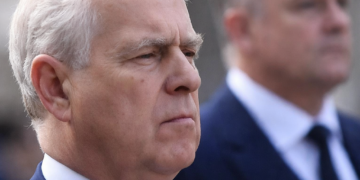Most Trump tariffs are not legal, that’s not me saying it, that’s a U.S. appeals court ruling in a 7-4 decision. This is devastating because tariffs weren’t just another policy tool for Trump—they were the beating heart of his economic agenda, the “tough guy” proof that he could bend the world to America’s will. Now, judges have basically said: nice try, but the Constitution doesn’t work like that.
The ruling hits Trump where it hurts. He loves portraying himself as the outsider businessman who can fix what career politicians broke, but the court just reminded him that presidents don’t get to write their own trade laws. Congress, not the Oval Office, holds the power to tax and tariff. Trump’s entire economic swagger suddenly looks like smoke and mirrors.
Why Trump’s Legal Argument Was Always Built on Sand
Trump tried to use a 1977 law, the International Emergency Economic Powers Act (IEEPA)—to justify slapping tariffs on everyone from China to Canada. The problem is that law was written for emergencies like freezing assets of hostile regimes, not rewriting U.S. trade policy from the Rose Garden.

Most Trump tariffs are not legal because the law doesn’t give him what he thinks it does. Declaring a “national emergency” over the fact that America imports more than it exports is not the same as an actual emergency. If every trade imbalance counts as a crisis, then every president could wake up one morning and slap taxes on whoever they want. That’s not presidential authority, that’s monarchy.
The Political Game Behind the Tariffs
This was never just about economics. Tariffs were theater. They made for great headlines, fiery campaign lines, and dramatic photo-ops where Trump could promise voters he was “finally making China pay.” American consumers paid the price, markets got rattled, and businesses faced chaos.
Most Trump tariffs are not legal because they were never designed to follow the law in the first place, they were designed to look tough, create a standoff, and force other countries to the negotiating table. That’s politics, not governance. Courts don’t care about optics, and this time Trump’s showmanship ran straight into the Constitution.
Why This Ruling Could Break Trump’s Economic Strategy
The bigger problem for Trump isn’t just losing one round in court. If most Trump tariffs are not legal, then his entire second-term economic strategy is in jeopardy. Tariffs were his hammer, the blunt-force tool he swung at every problem, trade deficits, fentanyl, manufacturing decline, even diplomacy. Take away that hammer, and what’s left?
Now the fight heads to the Supreme Court. Trump is betting that the conservative majority he often praises will save him. But even this Court has been skeptical of presidents discovering “new powers” in old laws. If they side against him, Trump won’t just lose tariffs, he’ll lose his narrative of being the one man strong enough to bend global trade by sheer willpower.
Courts Just Called Trump’s Bluff
Most Trump tariffs are not legal because Trump tried to rule by improvisation, not legislation. He treated a 1977 emergency law like a blank check, and the courts basically told him: your emergency isn’t our problem.
For years, Trump sold tariffs as proof that he alone could defend American workers. Now the courts have exposed the truth, he wasn’t defending workers, he was gambling with the law. And

















